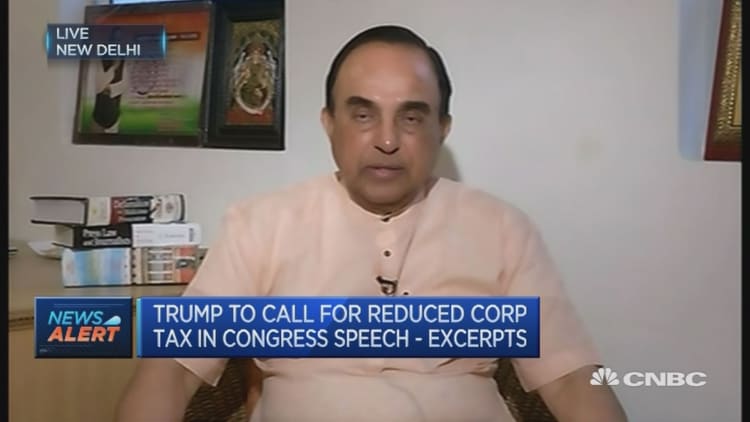India's lower house of parliament on Wednesday passed key legislations, putting Asia's third-largest economy on course to launch a nationwide goods and services tax (GST) from July.
Finance Minister Arun Jaitley aims to roll out the new sales tax from July 1 that will subsume a slew of federal and state levies, transforming a nation of more than 1.2 billion population into a single market.
What Jaitley calls the biggest tax reform since independence in 1947 is expected to boost economic growth by about 0.5 percentage points in its first year of implementation.

The four bills, passed by the lower house, would next be presented before the upper house of parliament.
Proposed tax rates range from 5 to 28 percent, with 12 percent and 18 percent being the standard rates. It has not been decided yet which tax rates will apply to which categories of goods.

